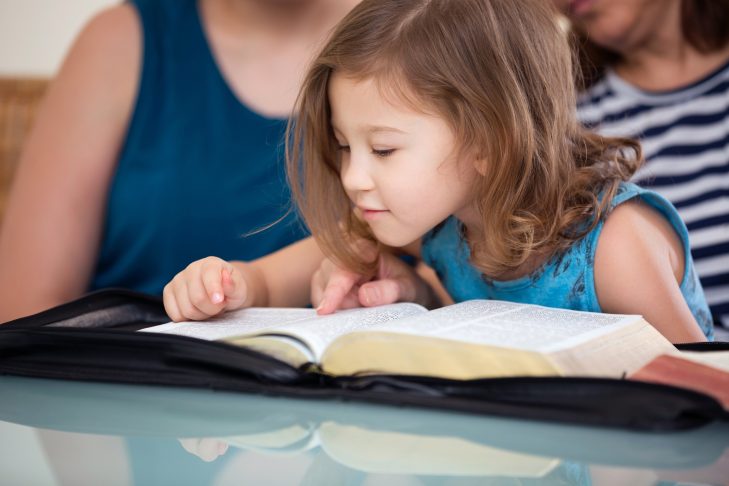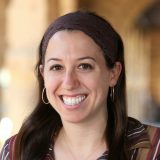Every Sunday for the last year, when my parents would come by to see their grandchildren (for however long they could stand being outside), my father would ask, “Did your minyan meet yesterday?” As the weather got colder and colder, my answer was always the same: “Yes.”
The “minyan” my family went to wasn’t really a minyan. There were no siddurim, no tefillot and no Torah reading. But this minyan became the main way we stayed engaged with our Jewish community through the long months when meeting for davening was impossible. Every Shabbat morning, a group of five to 10 families, parents and children, met in the parking lot of our shul for “Family Parsha.”
In the summer, we ate popsicles and talked about how sad we would be when the temperature dipped below 50 and it wouldn’t be comfortable anymore. But then, one October morning, it was 45 degrees. “Let’s just go anyway,” I said to my husband and children. “It will at least be a good walk.”
When we got there, another family had already put out the chairs. In a year of such isolation, it’s hard to describe the warmth and love we felt knowing that we would continue to show up for each other. By the time we were meeting in snowy, 20-degree weather, we stopped pretending we were going to stop. We sat in a circle, in folding chairs, our kids in their full body snowsuits, eating lollipops. The commitment to togetherness, of being there for each other, of trekking through the rain, snow, wind and cold to see one another, was powerful beyond anything I have ever experienced at any shul before.
We didn’t just show up. We learned. Every single week we studied the parsha together. It was simple. It was unpolished, and at times, it was improvised. Each week, a different family volunteered to lead. Sometimes we chose a story from the parsha and asked and answered questions about it. Other times we built a mishkan out of LEGOs. Another time, we relived every one of the 10 plagues. On a particularly cold Shabbat, we hiked “like Bnei Yisrael.”
What began as a program for children quickly expanded to include adults. I’ll never forget the many times adults asked questions they were genuinely wondering about in the parsha, only to get really interesting answers from each other’s 5- and 6-year-old children. These weren’t always profound questions. One time, a child asked the total age range between Jacob’s sons, from Reuven to Binyamin. We disagreed. Soon parents were pulling chumashim off the outdoor cart and identifying moments in the text that shed light on the question. The children loved the debate and contributed their insights.
In these moments, we weren’t preparing our children for Jewish life or performing Jewish ritual for our children. We were living Jewish life with them. In the process, we learned about what each of us found interesting in Torah, the kinds of questions we wondered about and the kinds of answers we offered.
Here’s the simple truth: For too long, Jewish educators have drawn sharp lines between programming for children and programming for adults. This year of Family Parsha, an educational innovation emerging out of circumstance, reminded me that Torah can be compelling enough to engage a group of people of all ages, at the same time, and in any weather. Simply sharing what we notice and wonder about in a parsha story can become a platform for adults and children to learn together.
A year of remote learning has education scholars, policy-makers and historians wondering how COVID-19 will impact the structures of Jewish communal life. Everyone in my community wonders how a year without regular shul will impact the rhythm and life of our community. I have no idea what the future will bring. But I’ll throw one deep insight into the ring.
Our experience with Family Parsha is a reminder that we would be well-served to challenge prevailing assumptions about who Jewish education is for and in what contexts. Jewish education doesn’t have to be flashy and it doesn’t have to silo children from adults. It just needs to bring together children with adults who are genuinely curious and open enough to notice that our children have a lot to teach us.
This post has been contributed by a third party. The opinions, facts and any media content are presented solely by the author, and JewishBoston assumes no responsibility for them. Want to add your voice to the conversation? Publish your own post here. MORE



